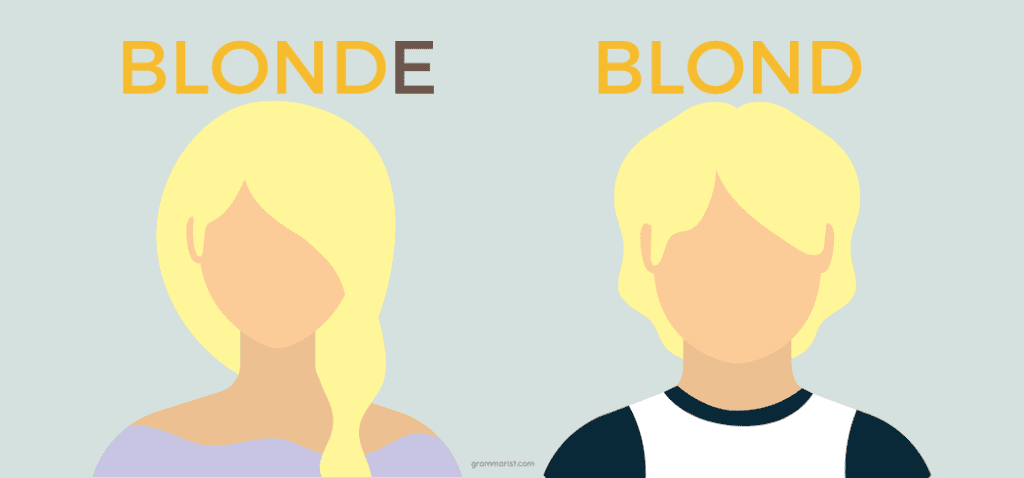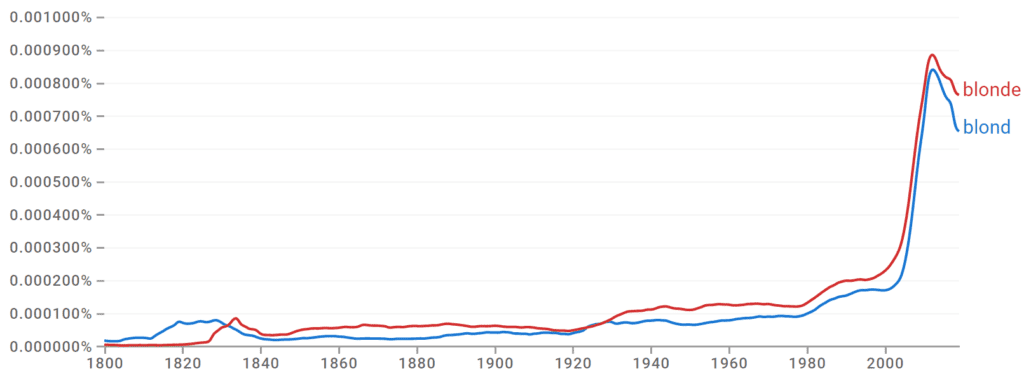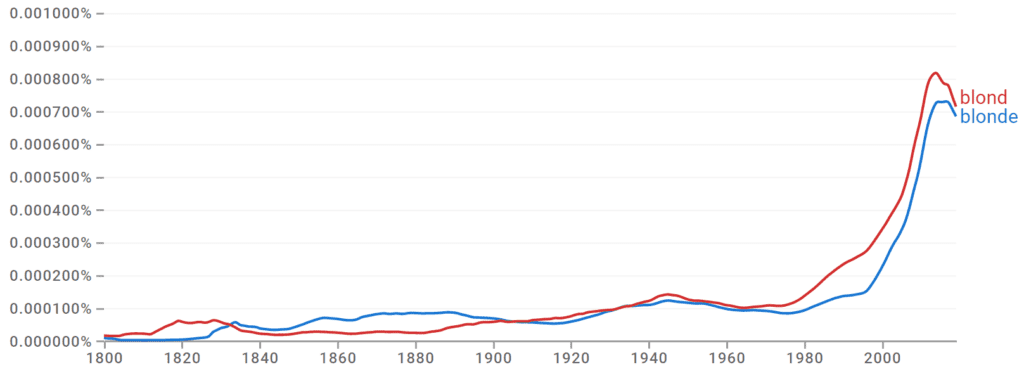The English language is chocked full of super confusing spelling and pronunciation rules, and “blond” and “blonde” are no exception, trust me. Are they interchangeable? Do they have different meanings? Is one a misspelling? Who knows! Wait…I know! I’ll clear up the confusion and help you understand the difference between the spellings of “blond” and “blonde.”
Blond vs. Blonde: What’s the Difference?

The main difference between the adjectives “blond” and “blonde” comes down to gender. The uses derive from French origins of spelling and grammar as they appoint feminine and masculine spellings to many different words.
“Blond” is used to describe males with golden yellow hair. It’s the masculine form of the word.
But “blonde,” with the added E on the end, is the feminine form and is supposed to describe females with the same fair hair and golden locks.
However, that rule has become a bit blurred over time, and the extra E has been thrown around for both men and women in writing. So much so that hardly anyone even notices.
Tip: Try and avoid using blonde as a feminine noun in a stereotypical way of talking about certain women.
Is It Blond or Blonde in the UK?

Outside of French concepts, the word has been simplified to be blond for both sexes in Canada and the US. However, in the UK, they’ve taken the spelling of blonde to cover both the masculine and feminine.
Is It Blond or Blonde Hair?

When it comes to describing hair color in writing, “blond” and “blonde” are both acceptable spellings in just about any context, with “blond” being more popular.
But, as I just mentioned above, “blond” without the E is used to describe the hair color of men or non-females, and “blonde” with the E is used for females. Remember that if you want to be grammatically correct.
Are Blonde and Blond Pronounced the Same?
You betchya! “Blonde” and “blond” are both spoken the exact same way. The only difference is the spelling, so you wouldn’t even notice the difference when hearing the words, only when reading them.
When to Use Blond
Use “blond” without the E when you’re talking about males or non-females with light-colored hair.
- He has blond hair.
- The boy’s hair was a beautiful shade of blond.
- I wish I had blond locks like him.
When to Use Blonde
You’d use “blonde” with the added E at the end to describe females or feminine objects with light-colored hair.
- She has blonde hair.
- The blonde woman at the bar caught his eye.
- The little girl had a cute blonde ponytail.
Sentence Examples Using the Word Blond
- The actor’s blond hair made him stand out on screen among all his brown-haired co-stars.
- I’ve always been jealous of my brother’s naturally blond hair; mine is plain old brown.
- The beach we went to last weekend was filled with blond surfers catching waves.
Sentence Examples Using the Word Blonde
- My sister is a total blonde bombshell and turns heads when she enters the room.
- Janice’s long blonde hair flowed behind her as she ran through the park; she looked like a Disney princess.
- My daughter loves her new Barbie doll with blonde hair, even though she colored it with green marker already.
- Despite being a curly-haired brunette, I gave birth to a snowy blonde daughter with straight hair.
It’s All About Gender
So just remember that you add the E at the end if you’re talking about females of any kind. The way I think of it is that blonde is a longer word than blond like female is longer than male. I hope my tips and guidance have helped!

Comments are closed.